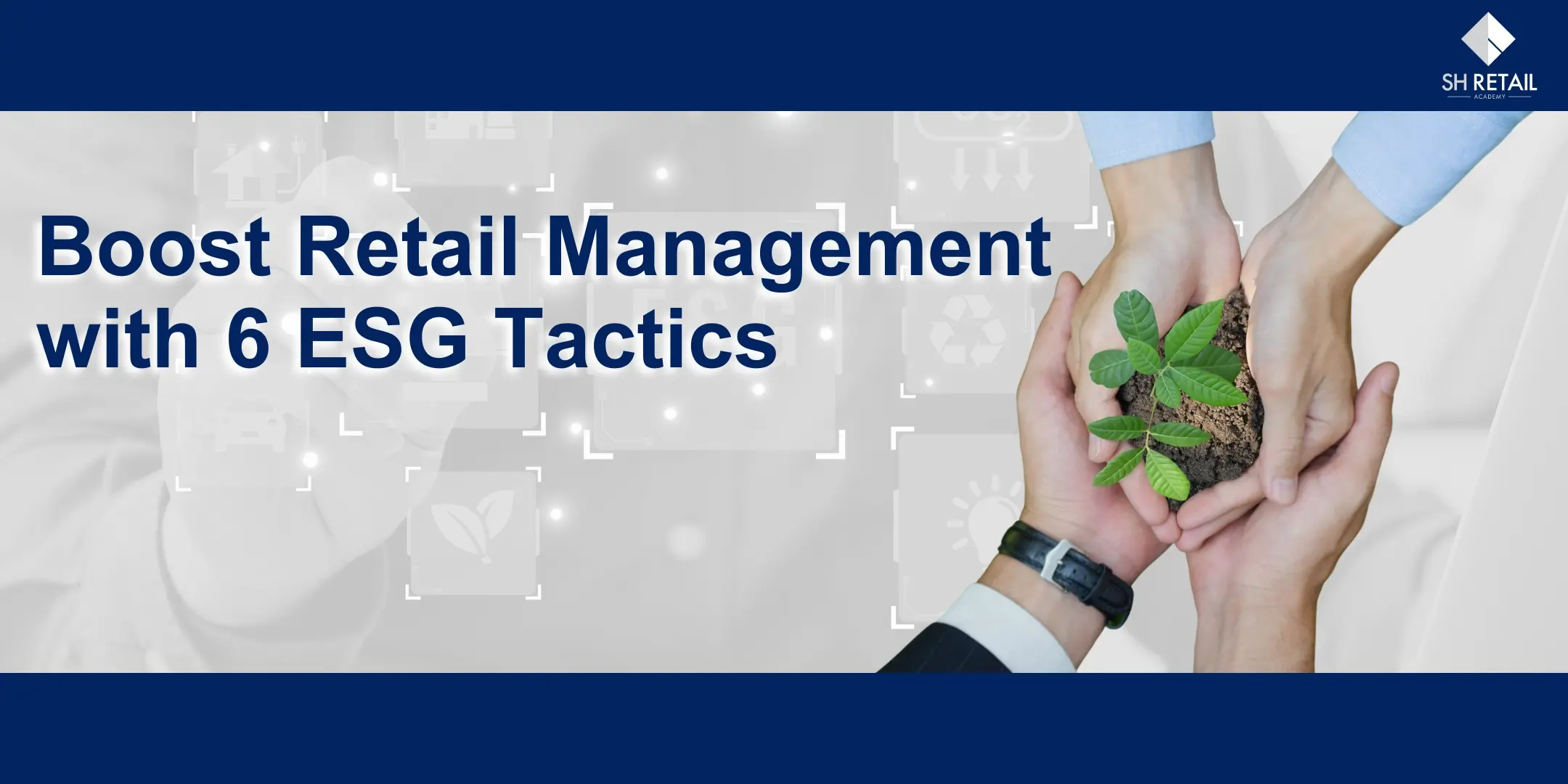
Retail Management
Environmental, Social, and Governance (ESG) is no longer a niche concern for large corporations—it has emerged as a vital framework shaping the future of sustainable business practices. For the retail industry, in particular, ESG is revolutionizing how companies operate, compete, and engage with their stakeholders.
With consumers becoming increasingly conscious of ethical consumption and social responsibility, retailers are under growing pressure to align their operations with values such as environmental stewardship, social equity, and transparent governance. From sourcing sustainable products and reducing carbon footprints to promoting fair labor practices and demonstrating community engagement, ESG is not just a trend but a strategic imperative for retail leaders aiming to thrive in a rapidly changing landscape. Embracing ESG isn’t merely about compliance; it’s about building trust, fostering loyalty, and staying competitive in a marketplace where consumers’ expectations continue to rise.

Here are six key ESG trends shaping the retail management landscape in 2024:
- Sustainable Supply Chains
Retailers are under intense scrutiny to ensure their supply chains are ethical and environmentally friendly. This includes:
- Ethical Sourcing: Prioritizing suppliers that adhere to fair labor practices, avoid child labor, and promote worker safety.
- Sustainable Materials: Increasing the use of eco-friendly materials like organic cotton, recycled polyester, and sustainable wood.
- Reduced Carbon Footprint: Optimizing logistics and transportation to minimize greenhouse gas emissions.
- Transparent and Ethical Operations
Transparency is key to building trust with consumers. Retailers should:
- Disclose Supply Chain Practices: Provide detailed information about sourcing, manufacturing, and distribution processes.
- Ethical Labor Practices: Ensure fair wages, safe working conditions, and respect for workers’ rights throughout the supply chain.
- Data Privacy and Security: Implement robust data protection measures to safeguard customer information.
- Circular Economy Initiatives
Adopting circular economy principles can reduce waste and minimize environmental impact:
- Product Lifecycle Extension: Designing products for durability, repairability, and recyclability.
- Take-Back Programs: Offering programs to collect and recycle used products.
- Rental and Subscription Models: Reducing the need for single-use products.
- Social Impact and Community Engagement
Retailers can make a positive impact on society by:
- Supporting Local Communities: Sourcing products locally, creating jobs, and partnering with community organizations.
- Charitable Initiatives: Donating to charitable causes and supporting social initiatives.
- Diversity and Inclusion: Promoting diversity and inclusion within the workforce and supply chain.
- Climate Action and Renewable Energy
Reducing carbon emissions is a critical aspect of ESG. Retailers can:
- Energy Efficiency: Implementing energy-efficient technologies in stores and warehouses.
- Renewable Energy: Transitioning to renewable energy sources.
- Climate-Friendly Packaging: Minimizing packaging waste and using eco-friendly materials.
- Consumer Education and Empowerment
Empowering consumers to make informed choices is essential:
- Transparency Labeling: Providing clear and accurate information about product origins, materials, and environmental impact.
- Ethical Marketing: Avoiding misleading claims and promoting sustainable practices.
- Consumer Education Campaigns: Raising awareness about sustainable consumption and responsible shopping.
Conclusion
By proactively embracing these ESG trends, retailers can not only enhance their brand reputation but also drive long-term business success. A commitment to sustainability, ethical practices, and social responsibility will be the key to thriving in the modern retail management landscape. As consumer expectations evolve, retailers that prioritize ESG will gain a competitive edge, attract environmentally conscious customers, and build lasting relationships with their stakeholders.
Moreover, by integrating ESG into their core business strategies, retailers can mitigate risks associated with climate change, supply chain disruptions, and reputational damage. By taking decisive action, retailers can position themselves as leaders in sustainable retail, shaping the future of the industry and contributing to a more sustainable planet.
Our comprehensive retail management training program and Executive Diploma in Retail Management offers practical strategies and tools to help you build a high-performing team capable of navigating today’s dynamic retail landscape.
Written by Amir Ashraff
SHRA Corporate Trainer
Amir is a trainer from SH Retail Academy. His passion for teaching and business handling gives him a lot of experience in teaching, training, retailing, customer service and operation management.
Reference: Six global trends in ESG to watch out for in Malaysia in 2024
4,688 total views, 4 views today



Sorry, the comment form is closed at this time.